#ANDREW JOHNSON
Explore tagged Tumblr posts
Text
I drew the US Presidents ⁉️⁉️
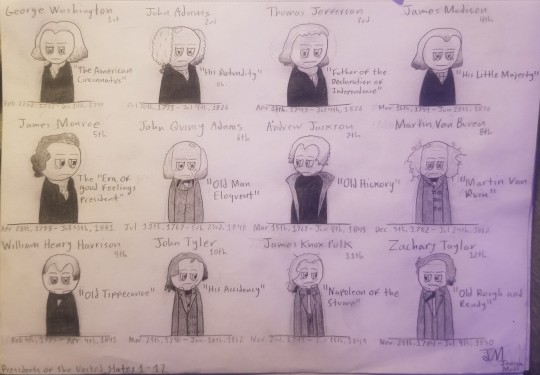
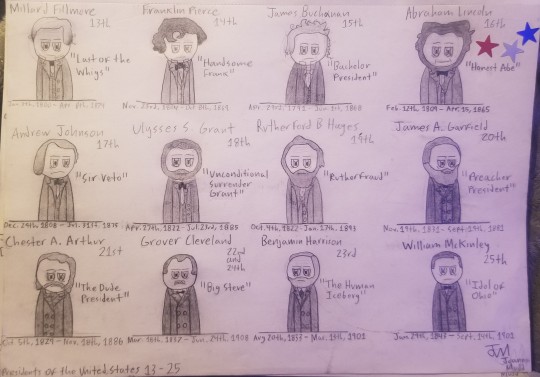
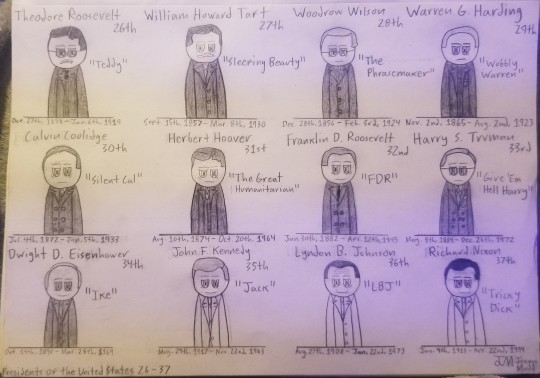
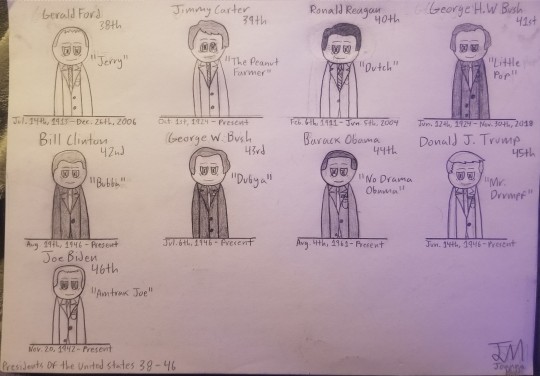
Constructive criticism is not allowed ⁉️⁉️(Because I only draw for fun lol, not mad or anything tho)
I couldn't tag anymore presidents 💔💔
#u.s. presidents#george washington#john adams#thomas jefferson#james madison#james monroe#john quincy adams#andrew jackson#martin van buren#william henry harrison#john tyler#james k polk#zachary taylor#millard fillmore#franklin pierce#james buchanan#abraham lincoln#andrew johnson#ulysses s grant#rutherford b hayes#james a garfield#chester a arthur#grover cleveland#benjamin harrison#william mckinley#theodore roosevelt#william howard taft#woodrow wilson#warren g harding#calvin coolidge
48 notes
·
View notes
Text

I think Andrew Johnson looks like a frog and so does LBJ they’re kinda twinning in that way
#User your beautiful leap day twin babies have arrived#andrew johnson#lyndon johnson#confessions#brave un anonymous confession
16 notes
·
View notes
Text
GUYS I DID IT I MADE A MEME :)))))
It's about the military reconstructionists during Johnson's presidency. Of course Johnson was like "NOOOO you can't reconstruct in the south >:,(" but Grant and Stanton were sneaky and got it done while still maintaining Johnson's trust. I added Sherman because Johnson tried to send Grant away to Mexico on a diplomatic mission so he wouldn't be able to do as much. Grant sent a letter to Sherman hinting that Johnson might appoint Sherman as acting secretary of war. Sherman came and said "NUH-UH" and then Grant got angry (everyone was shocked) at Johnson for assigning this to him because it is a diplomatic mission and it is under Seward's discretion. Meanwhile, Grant helped Congress to set up the five military districts that the South was under to keep the law in place. At this point the South was ignoring passed amendments and legislation. Violence against African Americans and white Republicans was very common and no action was being taken by state governments to administer justice. Sheridan did a great job to enforce these laws (he was in charge of Texas and Louisiana) and was supported by Grant. They did awesome and started reconstruction even though Johnson tried to stop them.
#american civil war#acw#civil war#ulysses s grant#us grant#edwin stanton#william t sherman#phil sheridan#philip h sheridan#andrew johnson#american reconstruction#history memes
26 notes
·
View notes
Text
"I regard [the President] as a foolish and stubborn man, doing even right things in a wrong way, and in a position where the evil that he does is immensely increased by the manner of his doing it."
-- Senator John Sherman of Ohio, on President Andrew Johnson, March 1, 1868.
#Quotes About Presidents#I can think of another President that this quote describes#History#Presidents#Presidential History#Andrew Johnson#President Johnson#Johnson Administration#John Sherman#Senator John Sherman#Congress#U.S. Senate#Politics#Political History#Political Quotes
49 notes
·
View notes
Text







Here comes Sirena. She lives in Del Sol Valley, in her quite "modest" house with a pool and her quite "modest" husband with a juicy bank account. Andrew is now a renowned lawyer and spends his money on expensive gifts for his wife and the best preschool education for their son. She works from home on her social media and has hundreds of followers. Everyone knows Sirena Pollock 💅🏽
#ts4 gameplay#ts4 challenge#ts4 legacy challenge#ts4 screenshots#guys they have like one million simoleons or something#they're loaded 😳#andrew johnson#sirena Pollock#nathan johnson#nate gets along pretty well with derek 🥹🙏🏽
63 notes
·
View notes
Text




Starting on the president cats again :3
#gonna do founding fathers and first ladies too#theres a lot of planning#rays art#history#presidents#us history#us presidents#george washington#john adams#thomas jefferson#andrew johnson
32 notes
·
View notes
Text
Happy Presidents Day! It's time for the results of the annual Presidential Greatness Project Expert Survey
So here are the five best and five worst presidents according to the 2024 survey. BTW, Grover Cleveland only gets counted once for this survey.
Here are the historians' collective rankings for the top five and bottom five.

I'm fully in agreement with #1 and #45.
The entire 12 page article (PDF) can be read here.
Lincoln, FDR, and Washington are in an exclusive group of greatness by themselves. Trump is in an exclusive group of odium all by himself. The ghosts of James Buchanan and Andrew Johnson are undoubtedly pleased that thanks to Trump, they'll never need to worry again about being considered the worst ever POTUS.
Some other tidbits from the survey.
Jimmy Carter (#22 overall) was chosen as the most underrated POTUS.
John F. Kennedy (#10 overall) was chosen as the most overrated.
The biggest rise in the rankings was by Barack Obama who rose 9 places since 2015.
The biggest decline goes to Andrew Jackson who tumbled 12 places since 2015.
Joe Biden is at #14 overall – in between John Adams and Woodrow Wilson. Though Biden is essentially tied with Adams; both having received scores of 62.66 points.
The ratings average which Republican historians gave to Biden (47.69) was significantly higher than the ratings average which Democratic historians gave to Trump (6.66). No, I didn't make up that 666. 👿
It's only history scholars who participated in this survey. They tend to take a longer view than most of us.
My biggest disagreements are that I would have placed Gerald Ford and John Quincy Adams higher and George W. Bush much lower.
A couple of articles about the 2024 rankings...
MAGA freaks out after Fox News reports Obama in top 10 presidents — and Trump in dead last
Presidential experts rank Biden 14th among presidents in survey, Trump comes in last
#presidents day#rankings of us presidents#potus#abraham lincoln#donald trump#joe biden#barack obama#jimmy carter#john f. kennedy#franklin d. roosevelt#george washington#john adams#woodrow wilson#james buchanan#andrew jackson#andrew johnson#john quincy adams#george w. bush#gerald ford#grover cleveland#election 2024
31 notes
·
View notes
Text


#Poll#President#Presidents#President of the United States#US President#Presidential Poll#America#Tumblr Poll#Tournament Poll#Andrew Johnson#Richard Nixon#Note: we do NOT own this artwork
11 notes
·
View notes
Text
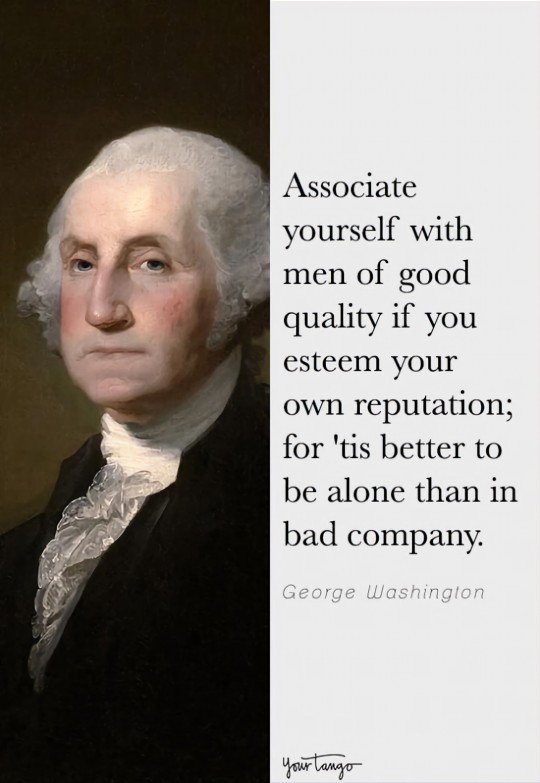
Happy President's Day 🇺🇲
George Washington who born February 22, 1732, had a successful liquor distiller business and was only a scholar in name because he never attended college.
Tidbits about other U.S. presidents:
•John Adams and Thomas Jefferson both died on July 4.
•James Madison was the shortest president.
•John Quincy Adams went skinny-dipping in the Potomac River daily.
•John Tyler was a father to 15 children.
•Abraham Lincoln was the tallest president at 6’4”, may have had Marfan Syndrome, a genetic disorder that causes people to be very tall, thin and long limbed.
•Andrew Johnson apparently cared for a family of White House mice, which he called “the little fellows.”
•Franklin D. Roosevelt was a movie buff.
•Gerald Ford used to be a model before president and a star football player at the University of Michigan he turned down offers from both the Detroit Lions and Green Bay Packers.
#president#love#presidents day#united states#holiday#john adams#thomas jefferson#james madison#john quincy adams#john tyler#abraham lincoln#andrew johnson#franklin d. roosevelt#gerald ford#george washington
11 notes
·
View notes
Text
Honestly, I've always thought, were we to return the Black Hills to their original native owners (As we should) so they can get rid of the big stupid colonizer heads amongst other things, we should make a smaller tourist trap elsewhere called Mount Shame that's a fiberglass sculpture of a "mountain" with our shittiest presidents on it that people can throw rotten fruit at.
Andrew Johnson (Sabotaged Reconstruction) would definitely be on it, as would Andrew Jackson (Genocide president) Woodrow Wilson (supercharged our imperialism and helped bring back the Klan), Nixon (Nixon) and Ronald Reagan (The source of most of our modern problems).
If you're wondering where Dubya is in all this, since he's still alive, we'd drag him to the top of Mt Shame and burn him alive, Mussolini-death-style, and leave his corpse up as a warning to future generations.
#mount rushmore#the black hills#tourist traps#silly#ha ha only serious#presidents#bad presidents#andrew johnson#andrew jackson#nixon#ronald reagan#woodrow wilson
33 notes
·
View notes
Note
Mozart, Abe is out of control
keep your hoes under control andrew.
3 notes
·
View notes
Text

[Clay Jones]
* * * *
LETTERS FROM AN AMERICAN
March 30, 2024
HEATHER COX RICHARDSON
MAR 31, 2024
On Tuesday morning, on his social media outlet, former president Trump encouraged his supporters to buy a “God Bless The USA” Bible for $59.99. The Bible is my “favorite book,” he said in a promotional video, and said he owns “many.” This Bible includes the U.S. Constitution, the Bill of Rights, the Declaration of Independence, and the Pledge of Allegiance. It also includes the chorus of country music singer Lee Greenwood’s song “God Bless the USA,” likely because it is a retread of a 2021 Bible Greenwood pushed to commemorate the twentieth anniversary of 9-11.
That story meant less coverage for the news from last Monday, March 25, in which Trump shared on his social media platform a message comparing him to Jesus Christ, with a reference to Psalm 109, which calls on God to destroy one’s enemies.
This jumped out to me because Trump is not the first president to compare himself to Jesus Christ. In 1866, President Andrew Johnson famously did, too. While there is a financial component to Trump’s comparison that was not there for Johnson, the two presidents had similar political reasons for claiming a link to divine power.
Johnson was born into poverty in North Carolina, then became a tailor in Tennessee, where he rose through politics to the U.S. House of Representatives and then the Senate. In 1861, when Tennessee left the Union, Johnson was the only sitting senator from a Confederate state who remained loyal to the United States. This stand threw him into prominence. In 1862, President Abraham Lincoln named him the military governor of Tennessee.
Then, in 1864, the Republican Party renamed itself the Union Party to attract northern Democrats to its standard. To help that effort, party leaders chose a different vice president, replacing a staunch Republican—Hannibal Hamlin of Maine—with the Democrat Johnson.
Although he was elected on what was essentially a Republican ticket, Johnson was a Democrat at heart. He loathed the elite southern enslavers he thought had become oligarchs in the years before the Civil War, shutting out poorer men like him from prosperity, but he was a fervent racist who enslaved people himself until 1863. Johnson opposed the new active government the Republicans had built during the war, and he certainly didn’t want it to enforce racial equality. He expected that the end of the war would mean a return to the United States of 1860, minus the system of enslavement that concentrated wealth upward.
Johnson was badly out of step with the Republicans, but a quirk of timing gave him exclusive control of the reconstruction of the United States from April 15, 1865, when he took the oath of office less than three hours after Lincoln breathed his last, until early December. Congress had adjourned for the summer on March 4, expecting that Lincoln would call the members back together if there were an emergency, as he had in summer 1861. It was not due to reconvene until early December. Members of Congress rushed back to Washington, D.C., after Lincoln’s assassination, but Johnson insisted on acting alone.
Over the course of summer 1865, Johnson set out to resuscitate the prewar system dominated by the Democratic Party, with himself at its head. He pardoned all but about 1,500 former Confederates, either by proclamation or by presidential pardon, putting them back into power in southern society. He did not object when southern state legislatures developed a series of state laws, called Black Codes, remanding Black Americans into subservience.
When Congress returned to work on December 4, 1865, Johnson greeted the members with the happy news that he had “restored” the Union. Leaving soldiers in the South would have cost tax money, he said, and would have “envenomed hatred” among southerners. His exclusion of Black southerners from his calculus, although they were the most firmly loyal population in the South, showed how determined he was to restore prewar white supremacy, made possible by keeping power in the states. All Republican congressmen had to do, he said, was to swear in the southern senators and representatives now back in Washington, D.C., and the country would be “restored.”
Republicans wanted no part of his “restoration.” Not only did it return to power the same men who had been shooting at Republicans’ constituents eight months before and push northerners’ Black fellow soldiers to a form of quasi-enslavement, but also the 1870 census would count Black Americans as whole people rather than three fifths of a person, giving former Confederates more national political power after the war than they had had before it. Victory on the battlefields would be overturned by control of Congress.
Congressional Republicans rejected Johnson’s plan for reconstruction. Instead, they passed the Fourteenth Amendment in June 1866 and required the former Confederate states to ratify it before they could be readmitted to the United States. The Fourteenth Amendment put the strength of the national government behind the idea that Black Americans would be considered citizens—as the Supreme Court’s 1857 Dred Scott decision had denied. Then it declared that states could neither discriminate against citizens nor take away a citizen’s rights without due process of the law. To make sure that the 1870 census would not increase the power of former Confederates, it declared that if any state kept men over 21 from voting, its representation in Congress would be reduced proportionally.
Johnson hated the Fourteenth Amendment. He hated its broad definition of citizenship; he hated its move toward racial equality; he hated its undermining of the southern leaders he backed; he hated its assertion of national power; he hated that it offered a moderate route to reunification that most Americans would support. If states ratified it, he wouldn’t be able to rebuild the Democratic Party with himself at its head.
So he told southern politicians to ignore Congress’s order to ratify the Fourteenth Amendment, calling Congress an illegal body because it had not seated representatives from the southern states. He promised white southerners that the Democrats would win the 1866 midterm elections. Once back in power, he said, Democrats would repudiate the Republicans’ “radicalism” and put his plan back into place.
As he asserted his vision for the country, Johnson egged on white supremacist violence. In July, white mobs attacked a Unionist convention in New Orleans where delegates had called for taking the vote away from ex-Confederates and giving it to loyal Black men. The rioters killed 37 Black people and 3 white delegates to the convention.
By then, Johnson had become as unpopular as his policies. Increasingly isolated, he defended his plan for the nation as the only true course. In late August he broke tradition to campaign in person, an act at the time considered beneath the dignity of a president. He set off on a railroad tour, known as the “Swing Around the Circle,” to whip up support for the Democrats before the election.
Speaking from the same set of notes as the train stopped at different towns and cities from Washington, D.C., to New York, to Chicago, to St. Louis, and back to Washington, D.C., Johnson complained bitterly about the opposition to his reconstruction policies, attacked specific members of Congress as traitors and called for them to be hanged, and described himself as a martyr like Lincoln. And, noting the mercy of his reconstruction policies, he compared himself to Jesus.
It was all too much for voters. The white supremacist violence across the South horrified them, returning power to southern whites infuriated them, the reduction of Black soldiers to quasi-slaves enraged them, and Johnson’s attacks on Congress alarmed them. Johnson seemed determined to hand the country over to its former enemies to recreate the antebellum world that northerners had just poured more than 350,000 lives and $5 billion into destroying, no matter what voters wanted.
Johnson’s extremism and his supporters’ violence created a backlash. Northerners were not willing to hand the country back to the Democrats who were rioting in the South and to a president who compared himself to Jesus. Rather than turning against the Republicans in the 1866 elections, voters repudiated Johnson. They gave Republicans a two-thirds majority of Congress, enabling them to override any policy Johnson proposed.
And, in 1868, the states ratified the Fourteenth Amendment to the Constitution, launching a new era in the history of the United States.
LETTERS FROM AN AMERICAN
HEATHER COX RICHARDSON
#history#Andrew Johnson#Civil War#political#Heather Cox Richardson#Letters From An American#Fourteenth Amendment
5 notes
·
View notes
Text



three things:
they made almost all the republicans sit in the back
one seat distance between seward and sumner & davis and douglas makes me supremely sorry for whoever is sitting there (also fessenden is right before sumner, which makes me imagine that he's having a very bad time listening to the two guys snapping at each other from behind him)
apparently the way people determined which seats were Good or Bad in the senate back then was based on a. how close it was to the president's chair and b. how close it was to known popular kid william seward
#the congressional incubator#jefferson davis#james henry hammond#andrew johnson#jefferosn davis#stephen douglas#john crittenden#john parker hale#charles sumner#william seward#william fessenden#benjamin wade#washington brotherhood
3 notes
·
View notes
Text
What If Abraham Lincoln did not die.
If Abraham Lincoln did not die, the course of American history would have been dramatically altered. Here are some possibilities of what could have happened:
Reconstruction: Lincoln's plan for Reconstruction of the South after the Civil War was more lenient towards the defeated Confederacy than the plan implemented by his successor, Andrew Johnson. If Lincoln had lived, it's possible that his plan could have been implemented, leading to a smoother and more successful Reconstruction period.
Civil Rights: Lincoln was an advocate for the abolition of slavery, but it's unclear how he would have approached the issue of civil rights for African Americans after the war. If he had survived, he may have pushed for more rapid progress in granting rights to black Americans.
Politics: Lincoln was a skilled politician, and his leadership during the Civil War helped keep the Union together. If he had lived, he could have potentially continued to influence politics in the United States and shape the future of the country.
Foreign Relations: Lincoln's foreign policy was characterized by his attempts to avoid conflict with other nations, while still promoting American interests. If he had survived, he may have continued to pursue this approach to foreign relations and avoided some of the conflicts that arose later in American history.
It's impossible to say for certain how American history would have unfolded if Lincoln had survived, but it's clear that his influence on the country would have continued for many years to come.
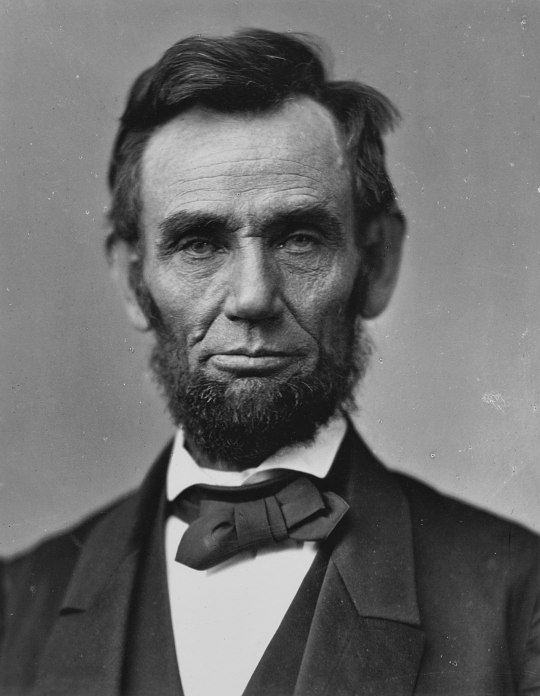
#today on tumblr#abraham lincoln#American history#civil war#american civil war#black lives matter#African Americans#african culture#usa#Andrew Johnson#ended slavery#slavery#history#lincoln memorial#political#foreign relations#politics#us politics#us history#states rights#confederacy#confederalist#confederate
29 notes
·
View notes
Text
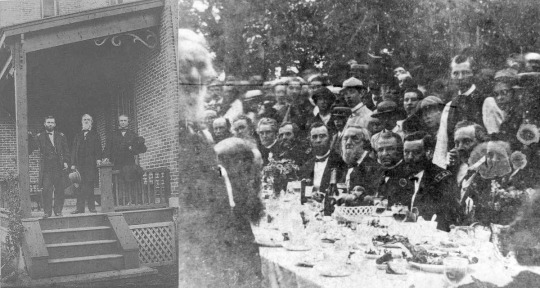
"You know very well, sir, for you were familiar with my views while I was President, what my estimate of [Ulysses S.] Grant was, and I don't know anything that has since occurred that has caused me to change my mind the slightest. I know Grant thoroughly. I had ample opportunity to study him when I was President, and I am convinced he is the greatest farce that was ever thrust upon a people. Why, the little fellow -- excuse me for using the expression, but I can't help pitying him -- the little fellow has nothing in him. He hasn't a single idea. He has no policy, no conception of what the country requires. He doesn't understand the philosophy of a single great question, and is completely lost in trying to understand his situation. He is mendacious, cunning and treacherous. He lied to me flagrantly, by God, and I convicted him by my whole Cabinet; but that even would have been tolerable were it the only instance, but it was not. He lied on many other occasions.
I tell you, sir, Grant is nothing more than a bundle of petty spites, jealousies and resentments. And yet they say Grant is a second Washington. Only think of it, when you compare him with Washington or Jefferson where is he? Why he is so small you must put your finger on him. He, a little upstart, a coward, physically and intellectually, to be compared to George Washington! Why, it makes me laugh. I have more pity for the man than contempt, for I have no spite against him. But I fear for the country when such a man is likened to the father of his country. Why, just look at the inaugural of Washington. He speaks about his fear and trembling in accepting the Presidency, even after all his experience and success. But this little fellow Grant, an upstart, a mere accident of the war, a creature without the ability to comprehend the philosophy of a single great question, says in his inaugural, 'I know the responsibility is great, but I accept it without fear.' Is that like Washington or Jefferson? Pshaw! It's monstrous to think of.
Grant, I tell you, sir has no ideas, no policy. Why, Washington considered that a man's greatness was measured by his morality, by the standard of his soul. And I have always considered that the more soul a man had, the more developed the soul or intellect within him, the more Godlike he became. But, sir, Grant has nothing. Physically and mentally and morally he is a nonentity. Why, sir, his soul is so small that you could put it within the periphery of a hazel nutshell and it might float about for a thousands years without knocking against the walls of the shell. That's the size of his soul.
Just look at the man sitting at a Cabinet council. He has no idea, no policy, no standard, no creed, not faith. How can he guide the people? How can he impress any great improvements or moral ideas upon the nation? He has no object to look forward to, no leading aim to draw the people towards any particular end. He sits there with his Cabinet. One member has bought him a house in Philadelphia, another has given him $65,000, another has given him a carriage, and so on. It is degrading to the office of President of the United States to have such a man there.
They talk about his generalship. Well, he was a mere incident of the war. Men and arms were supplied in abundance, and his forces were so massive that they simply crushed out the rebellion. It would have been done had Grant never been born. Therefore he was a mere incident. But the little fellow has come to think he is somebody really. I can't help pitying him when I think how well I know him and what an infinitesimal creature he really is."
-- Former President Andrew Johnson, delivering a scathing attack on President Ulysses S. Grant, shortly after Johnson left the White House, during an interview with a correspondent from the New York Herald, June 27, 1869
#History#Presidents#Ulysses S. Grant#General Grant#President Grant#Grant Administration#Andrew Johnson#President Johnson#Politics#Political History#Political Rivals#Quotes by Presidents#Quotes about Presidents#Presidents on Presidents#Military History#Military Leaders#Civil War#Civil War History#Civil War Leaders#Presidential History#Presidency#Presidential Relationships#Presidential Rivalries#Grant
20 notes
·
View notes
Text








As soon as she arrived, Sirena realized that her date didn't even show up. She was ready to go back home and forget about the night entirely when a stranger approached her and asked her to dance. Wait a minute, he wasn't a stranger… he was the boy she rejected at school, right?

#ts4 gameplay#ts4 challenge#ts4 legacy challenge#ts4 screenshots#the asshole she invited was nowhere to be found so I started looking for him on the lot#when I returned with Sirena she was dancing with Andrew and that “crush” window popped up 🥺💖#I wanted them to connect in college but either way it's still cute 👉🏽👈🏽#pollock legacy#gen3#sirena pollock#andrew johnson
88 notes
·
View notes